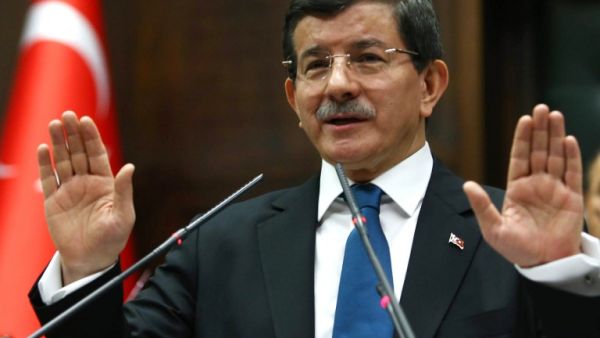Turkey, having invested in ambitious Asian and African initiatives to expand market penetration and build political capital, has missed a golden opportunity to make its case by not sending a senior representative to the 60th Asian African Conference Commemoration held in Indonesia.
Turkey was a no show for the event held on April 19-24 with an attendance of some 1,800 registered delegates from 92 countries, of which more than 21 were represented by heads of state and heads of government.
The conference program first started with senior officials meeting on April 19, followed by a ministerial meeting on April 20. There were later additional events as part of the Asian-African Business Summit on April 21 and the Asian-African Summit on April 22-23.
According to an Ankara-based Asian diplomat who wanted to remain anonymous, the Ministry of Foreign Affairs had informed the Indonesia Embassy in Ankara that only the Turkish ambassador in Jakarta would be dispatched to the conference.
Though the same source confirmed that an invitation had been sent to the offices of the prime minister and the president as well as all ministers, he said Indonesian officials were shocked to learn that none of Turkey's senior officials had confirmed their attendance.
The conference is seen as a milestone in the history of Asian and African countries and was held in Bandung, Indonesia, for the first time in 1955 in order to discuss issues related to peace, security and economic development. Valuing self-determination and regional cooperation, the 1955 conference inspired a movement that aimed to remain neutral during the Cold War era, in 1961 officially called the “non-aligned movement.”
Turkey, the only NATO member represented at the Bandung conference, insisted that none of the newly independent states could avoid the influence of either the US or the Union of Soviet Socialist Republics (USSR) -- former Russia -- in the then bipolar world system.
While emphasizing the necessity of choosing a side, Turkey suggested that the 29 attending countries of the Bandung Conference side with the US. Such a stance during the first meeting of the Asian African Conference was disappointing to the other countries in attendance and conflicted with their objectives.
Though established as a reaction to the intense events of the Cold War and the unjust results of colonialism, the conference is now more focused on contemporary security issues and, more importantly, on promoting peace through regional economic cooperation.
This event could have been the perfect stage for Turkey to express its altered view on world powers and its willingness to cooperate with the developing nations of the post-Cold War world.
Despite trying to approach Asia and Africa with a more effective and active policy in recent years, Turkey missed a crucial opportunity to meet with the high-level officials in attendance.
Turkish officials had recently changed the date of the Gallipoli Campaign Commemoration, also known as the Battle of Çanakkale Commemoration, from the traditional day of March 18 to April 24-25 and it is possible that the conflicting schedule is the reason why the prime minister and the president declined to attend. However, it is still a significant loss for Turkey that it was not represented by a minister or a deputy prime minister at such an essential conference.
Leaders in attendance included Egyptian Prime Minister Ibrahim Mehleb, Iranian President Hassan Rouhani, Chinese President Xi Jinping and Japanese Prime Minister Shinzo Abe. In addition to heads of state and government, a large portion of the delegates were composed of deputy prime ministers, foreign ministers and other important ministers.
--- Turkey's cooperation with Asia and Africa
An action plan dating back to 1998 was adopted by Turkey to initiate close relations with African nations, and Turkey continued its attempts to improve relations with the African continent by declaring 2005 the “Year of Africa.” As a response to Turkey's initiatives the African Union in 2008 declared that Turkey was a “strategic partner of the continent.” The same year the Turkey-African Cooperation Summit was held, followed by the second summit in 2014.
Similarly, Turkey has been trying to reach out to developing Asian countries recently, particularly those located in Southeast Asia. In 2010, Turkey became a signatory of the Treaty of Amity and Cooperation in Southeast Asia (TAC) under the Association of Southeast Asian Nations (ASEAN).
According to data from the Turkish Statistics Institute (TurkStat), Turkey's trade volume with ASEAN members was around $8.5 billion in 2014, while total trade between Turkey and Sub-Saharan Africa was around $6.4 billion in the same year. Turkey's annual trade with both continents has increased notably since 2009, though certain years witnessed recessions during which Turkey could have used trade-boosting events such as the one it just missed.

This event could have been the perfect stage for Turkey to express its altered view on world powers and its willingness to cooperate with the developing nations of the post-Cold War world. (AFP/File)







